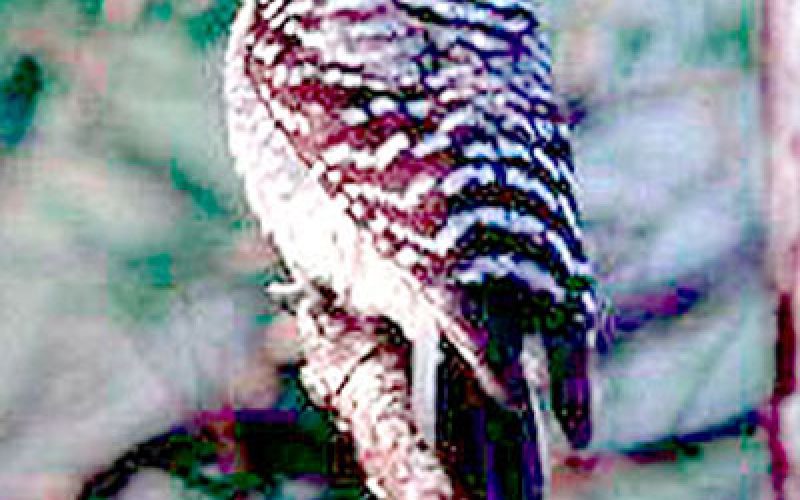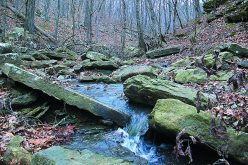By Amanda Bancroft
May 16 is Endangered Species Day! This year marks the 9th anniversary of Endangered Species Day after it was first declared by the U.S. Congress in 2006.
According to the Arkansas Game and Fish Commission, our state hosts 21 endangered species, half of which are freshwater mussels. The list also includes the American Alligator, Ozark big-eared bat, Indiana bat, gray bat, cave crayfish (stable), American burying beetle, Magazine Mountain shagreen (stable), interior least tern, red-cockaded woodpecker, pallid sturgeon, and the Ozark cavefish. The Arkansas Natural Heritage Commission lists more than 70 rare species in our state. Nationwide, there are currently about 457 animal and 703 plant species listed as endangered.
But as of 2013, at least one of these is no longer endangered. “In the highest parts of Arkansas’ Ozarks, the slow-moving Magazine Mountain shagreen snail (Inflectarius magazinensis) has won the race to become the first invertebrate to be recovered and removed from Endangered Species Act protection,” cites the U.S. Fish and Wildlife Service. This is a giant leap for snailkind, and hopefully more species will be added to the success list.
The red-cockaded woodpecker, which lives in the Ouachita National Forest, is the second most rare bird in the state after the Ivory-Billed Woodpecker. You might say these woodpeckers are super picky home buyers – they require old growth pine forests with trees

File photo
A manmade shelter for the red cockaded woodpecker is shown in this 2006 image that was taken in the wildlife management area near Hampton, Ark.
that have been infected with a particular fungus in their heartwood, so the woodpeckers are able to excavate a nesting cavity. Artificial cavities (pictured) have been successful at helping them nest in Arkansas after forest ecosystems suffered clearcutting.
The three endangered species of bats in Arkansas – the Indiana, Ozark, and big-eared bats – require conservation measures not only for the caves in which some species hibernate, but also the forests where Indiana bats roost and breed.
There are many rare and endangered mussels in Arkansas, including these 10 species: scaleshell, winged mapleleaf (stable), speckled pocketbook, fat pocketbook (stable), Ouachita rock pocketbook, Arkansas fatmucket, pink mucket pearlymussel (stable), Louisiana pearlshell, and the Curtis pearlymussel and turgid blossomshell which are both listed as extirpated – no longer found within its former habitat in Arkansas, even though it may be found elsewhere.
Celebrate Endangered Species Day by creating your own personal action plan. Because so many of these species live in freshwater habitats, the Illinois River Watershed Partnership (irwp.org) has some suggestions for small actions we can take to improve water conservation in Northwest Arkansas:
• Using less water by taking shorter showers
• Turning off the faucet while brushing your teeth
• Installing rain barrels and rain gardens
• Planting trees and shrubs to improve riparian buffer zones
• Being mindful of herbicide and pesticide use
• Planting a butterfly garden or bird garden
• Promoting the use of Low-Impact Development (LID) measures in your community.
Ripples is an emerging online educational center that teaches a holistic approach to making a difference. Follow our journey to live sustainably and make ripples with our lifestyle at: www.RipplesBlog.org.











